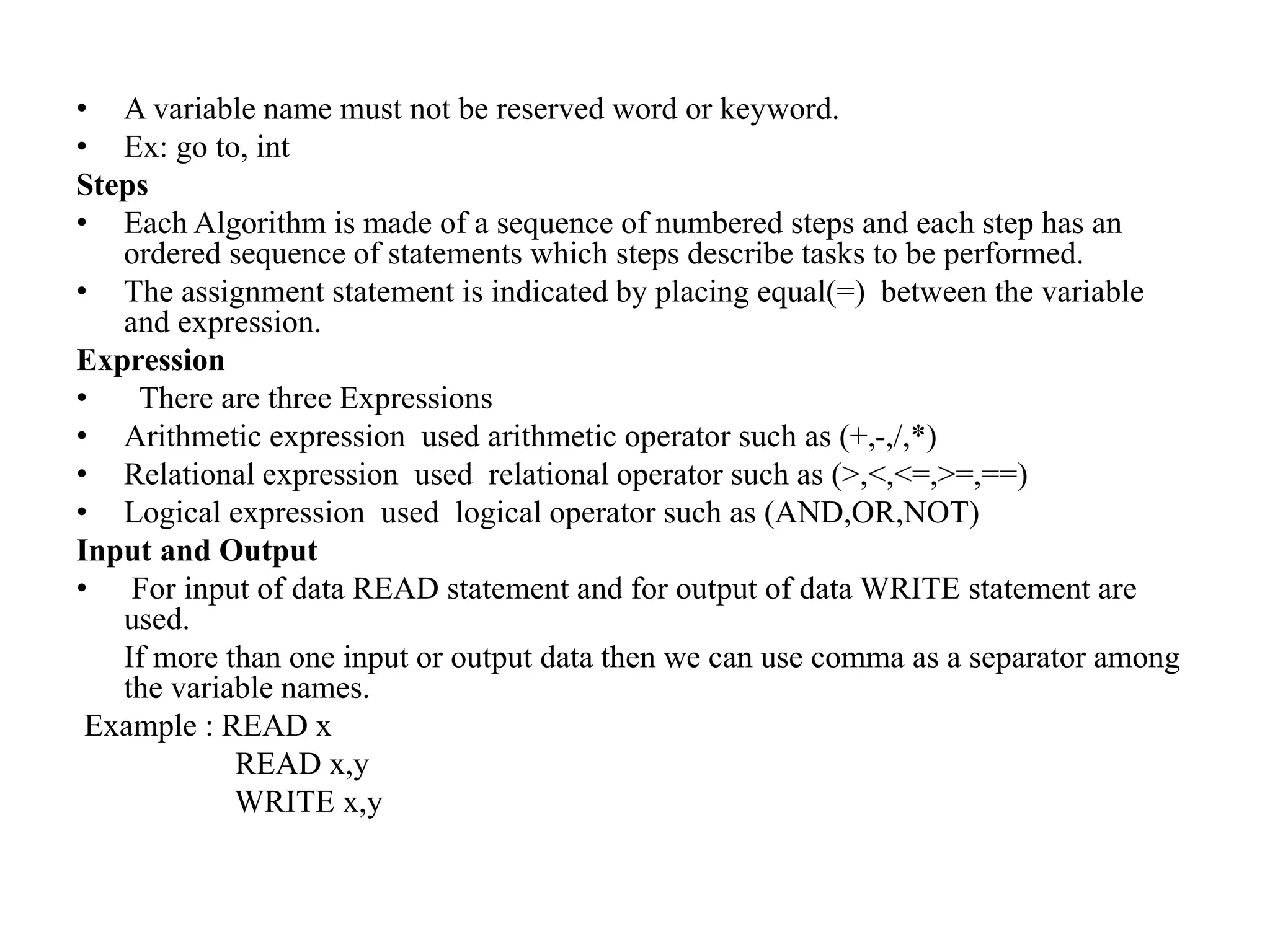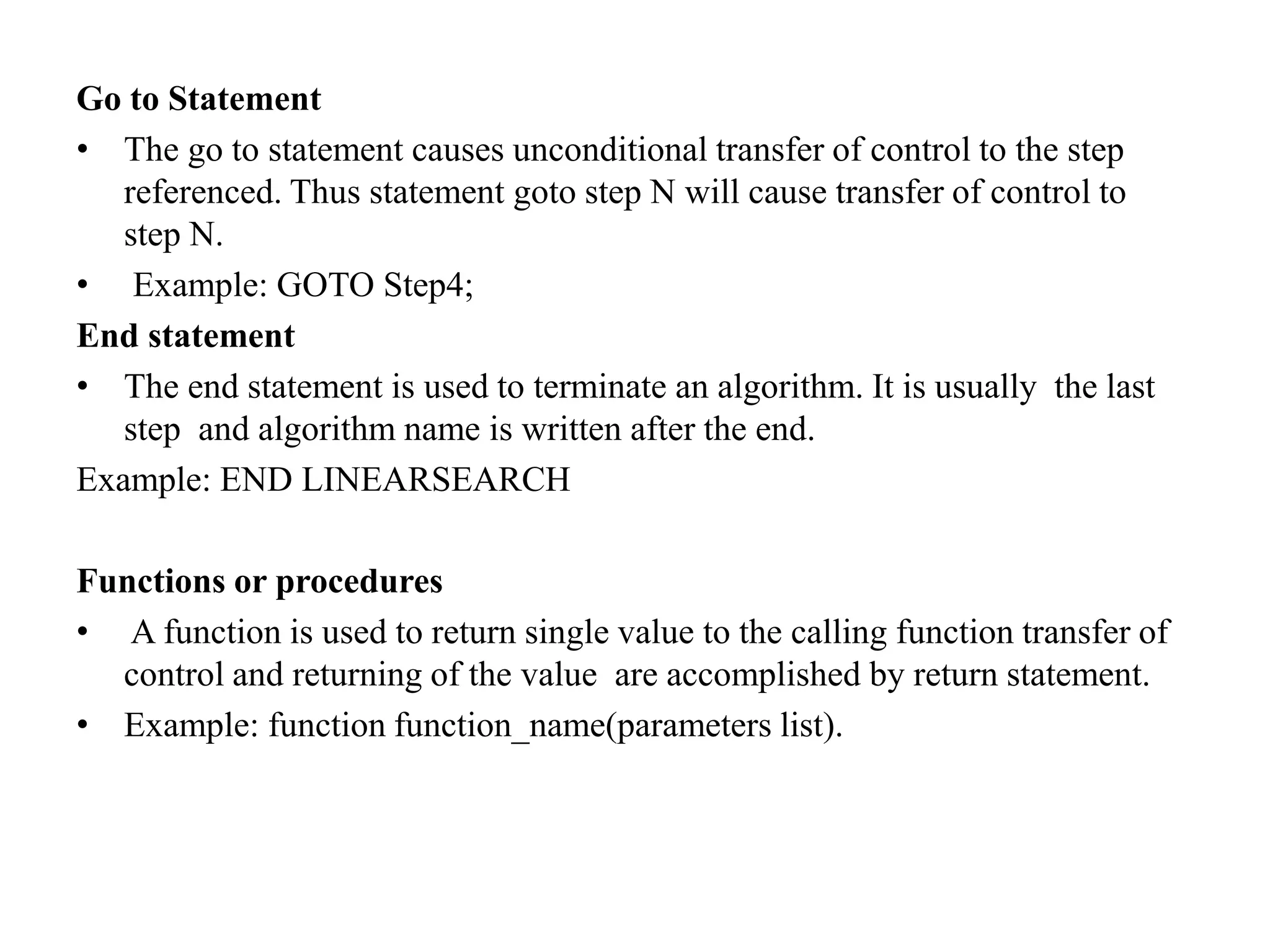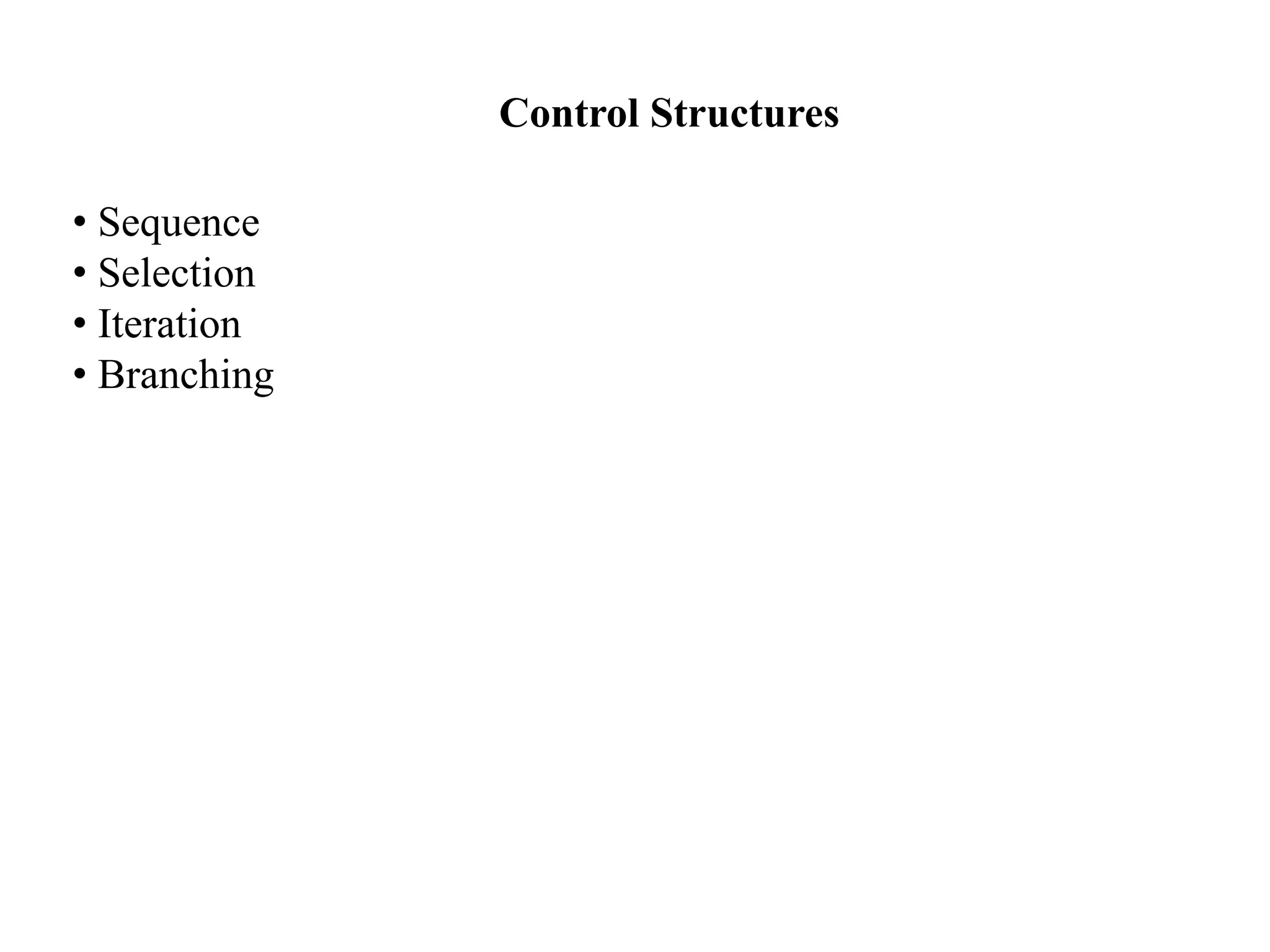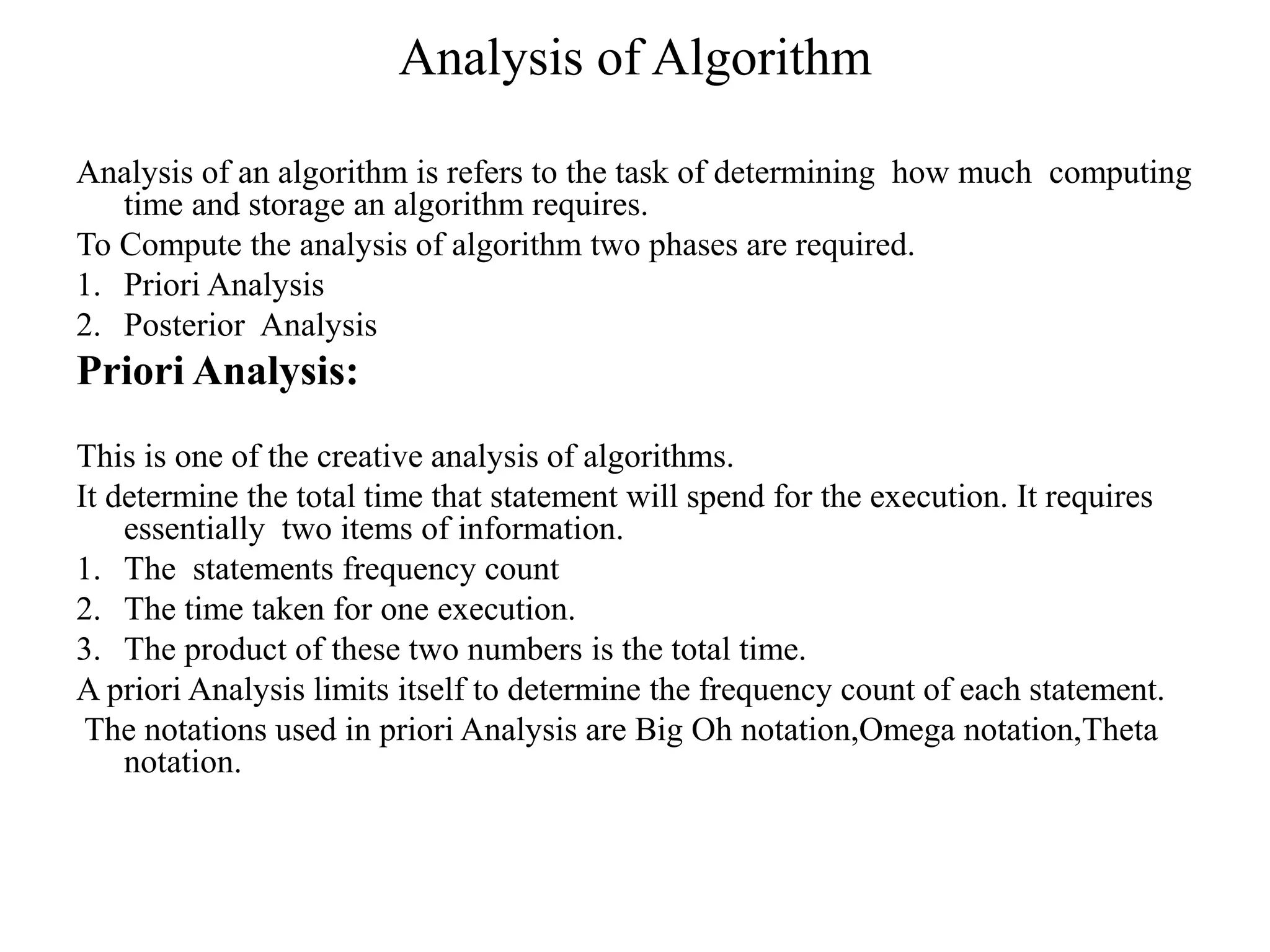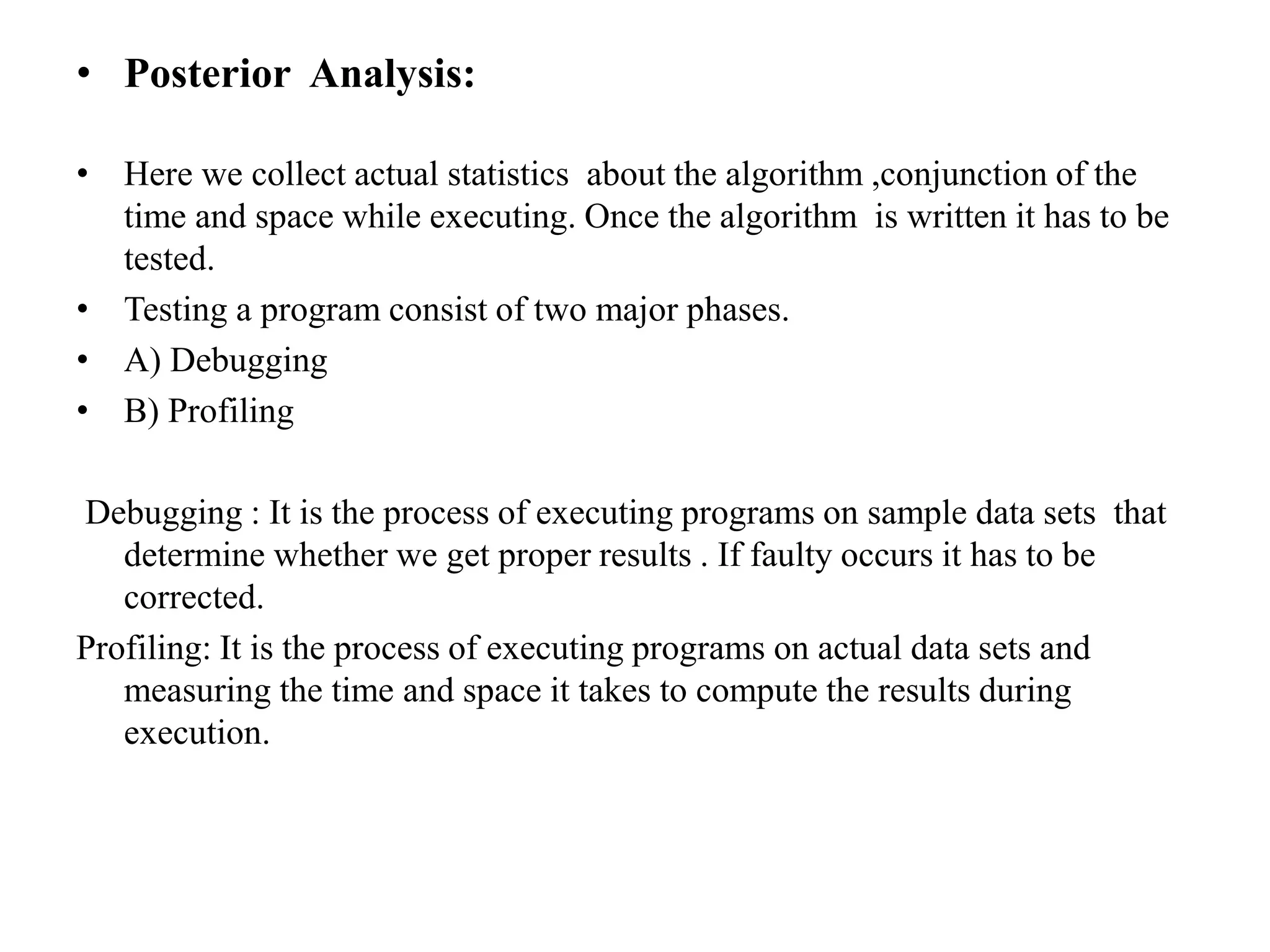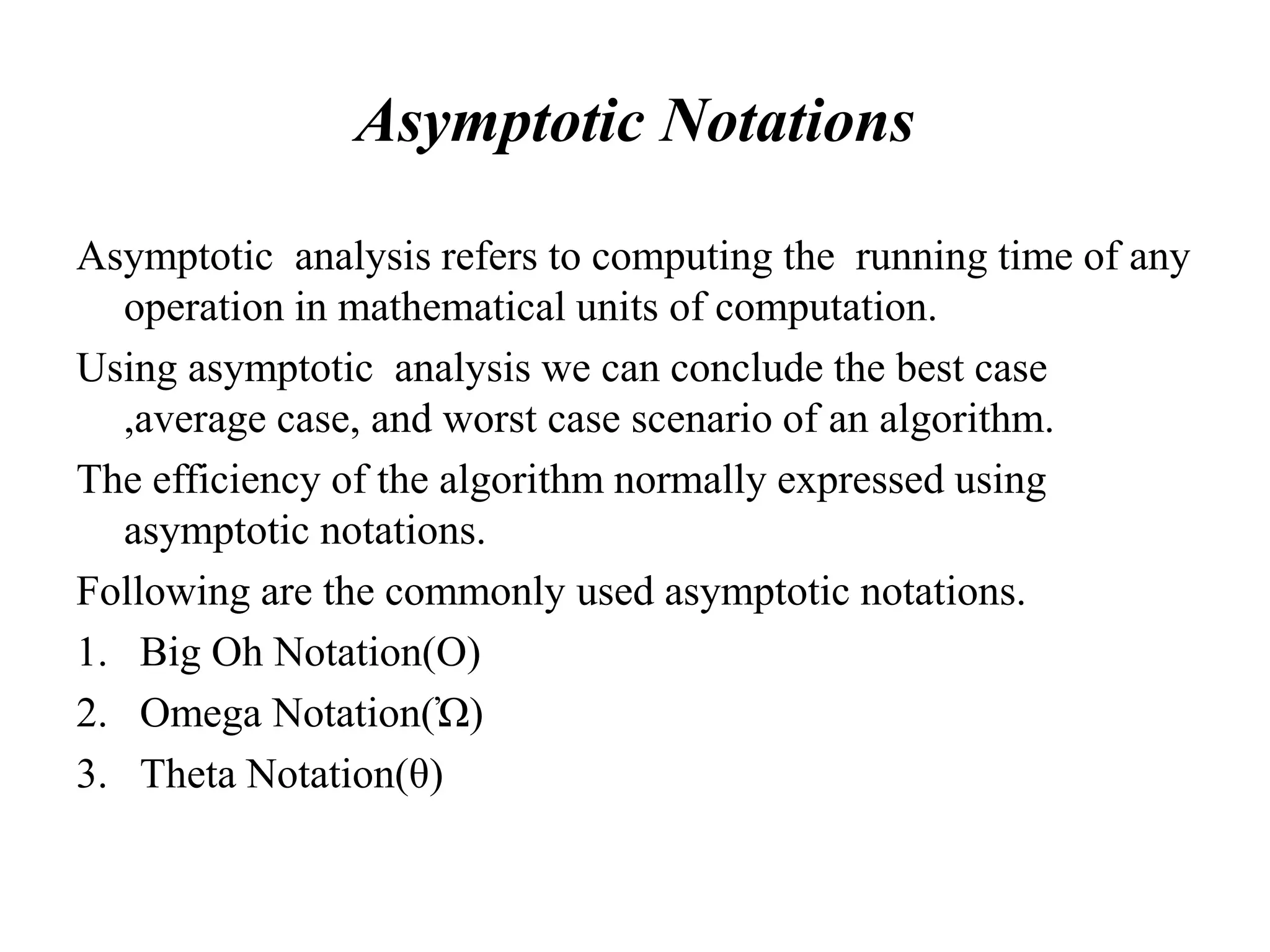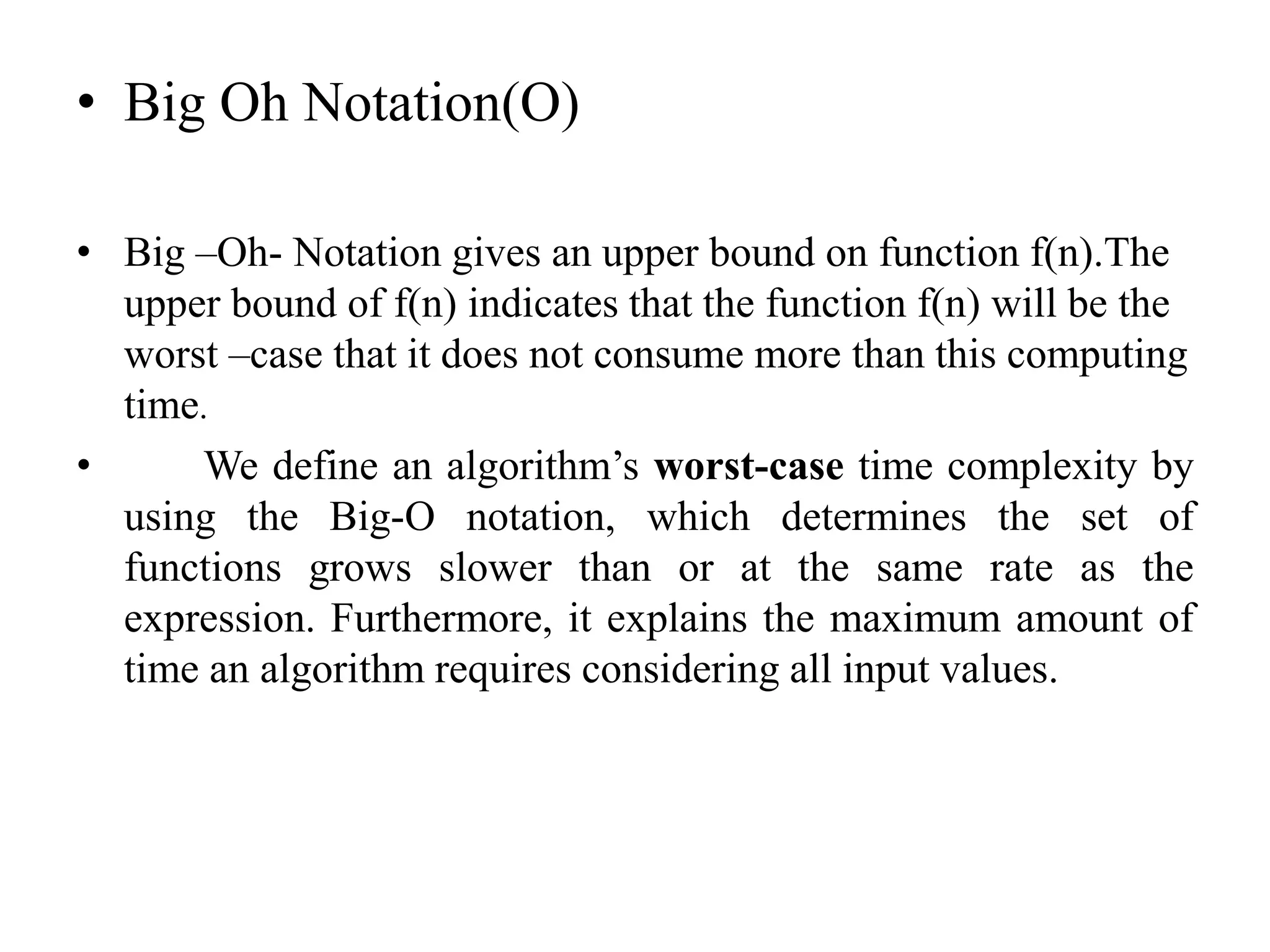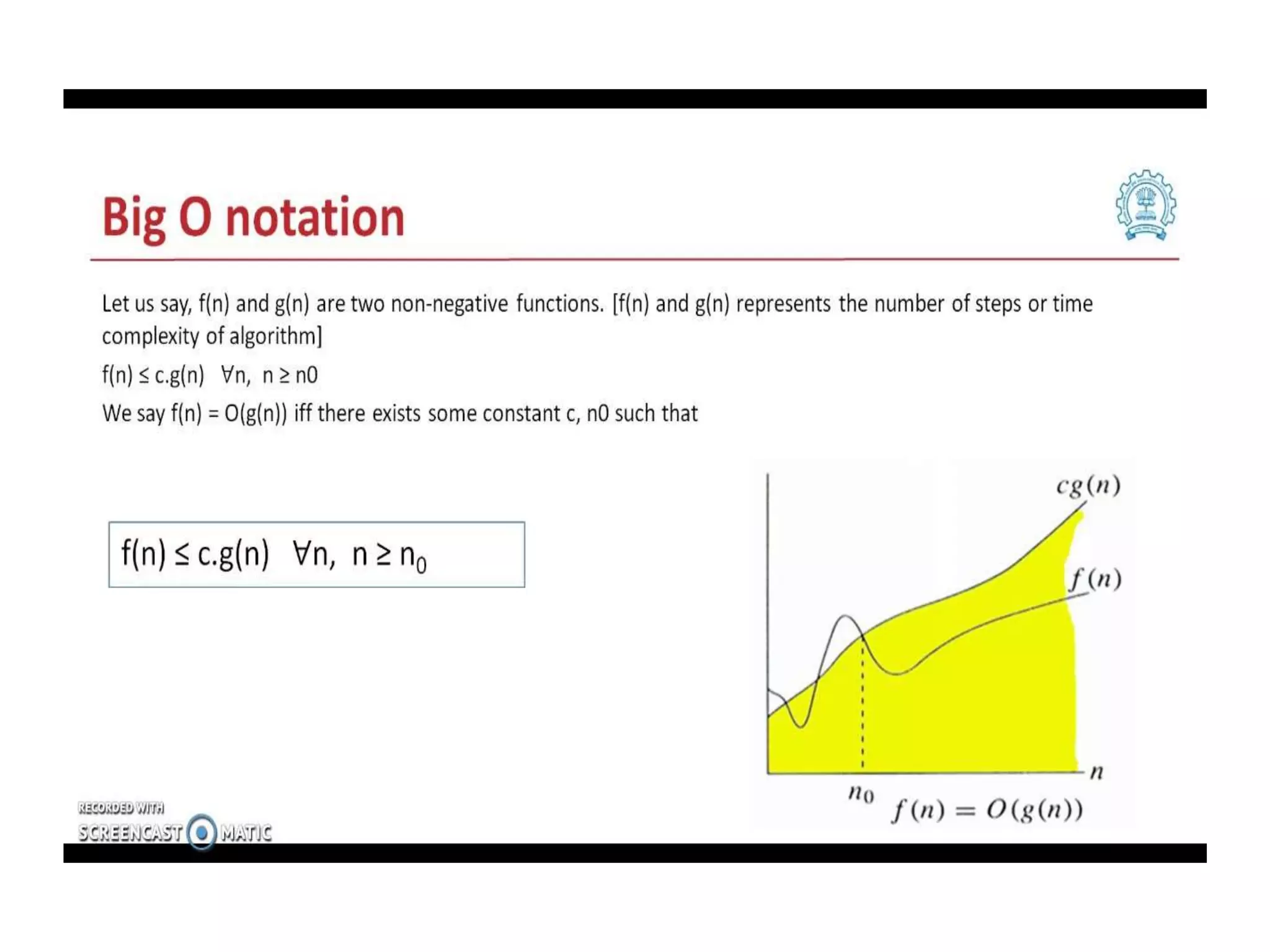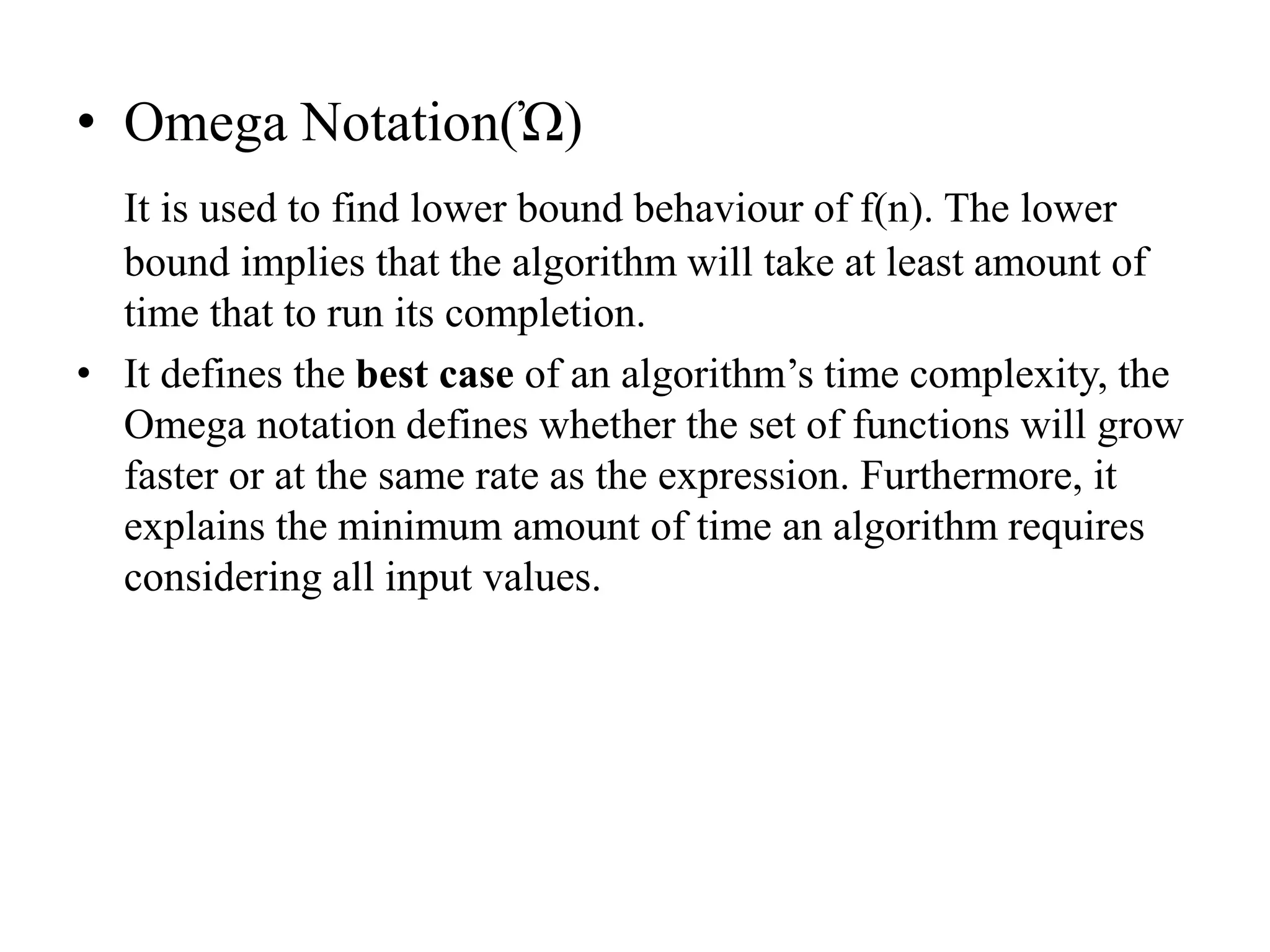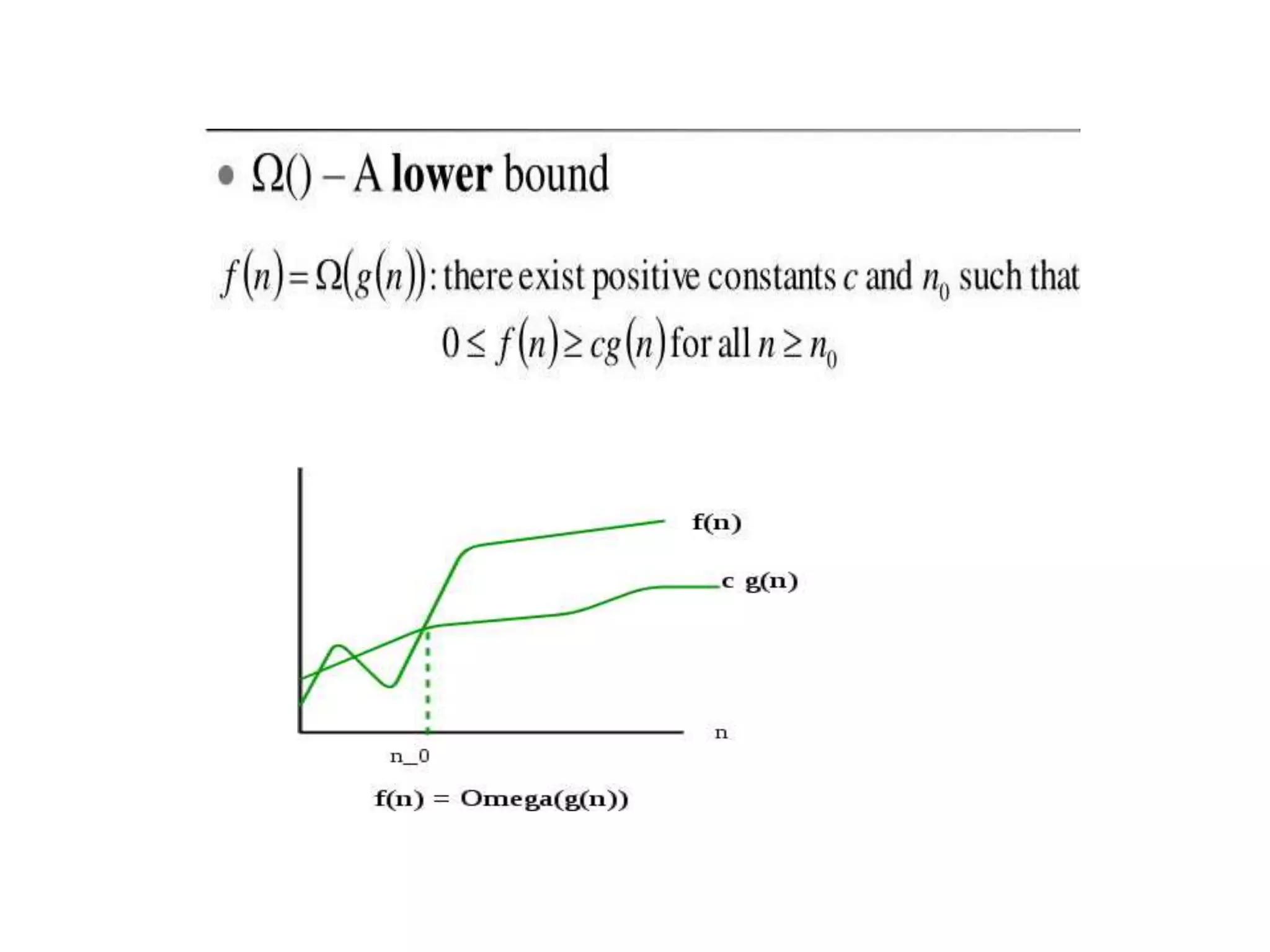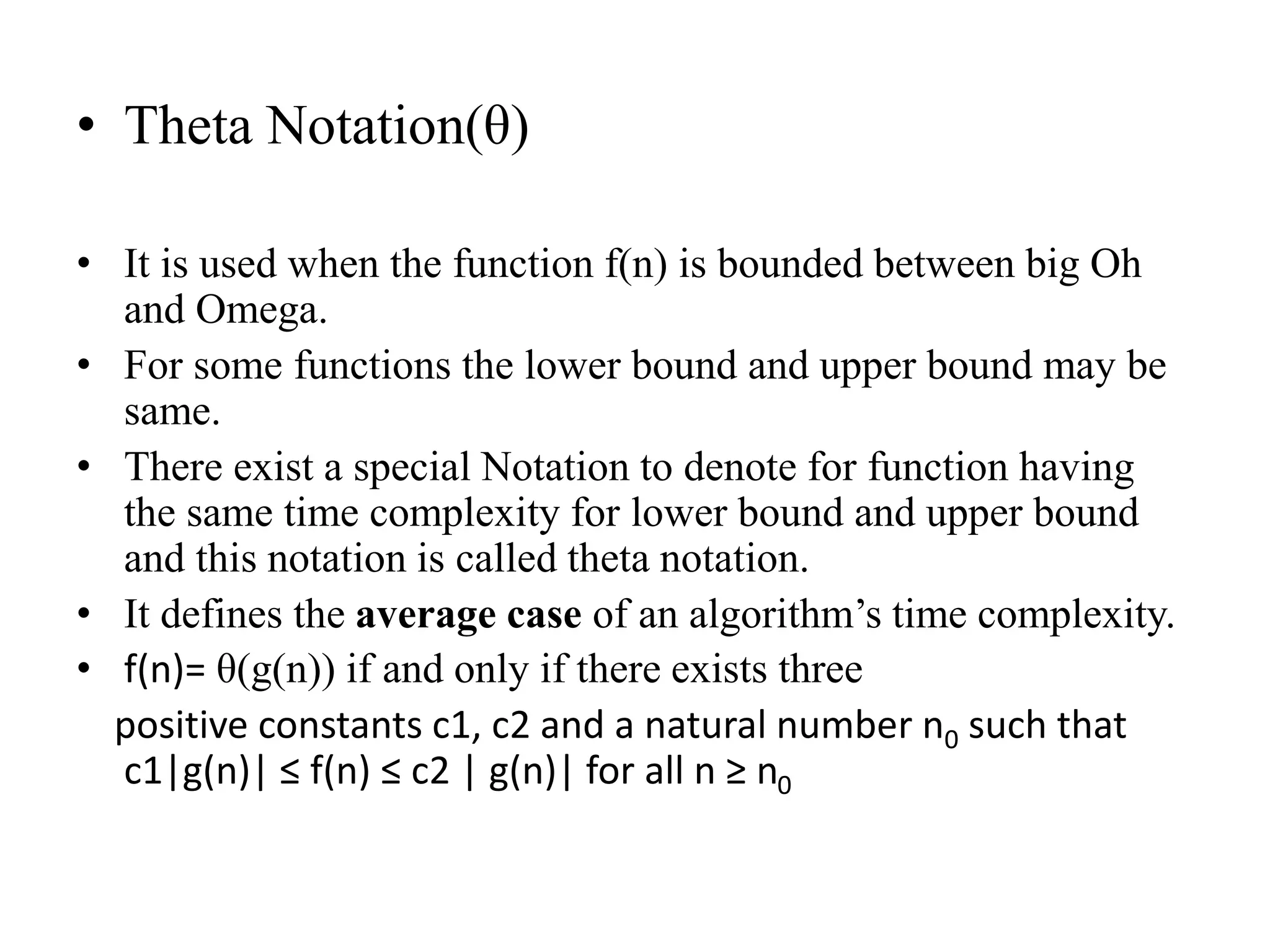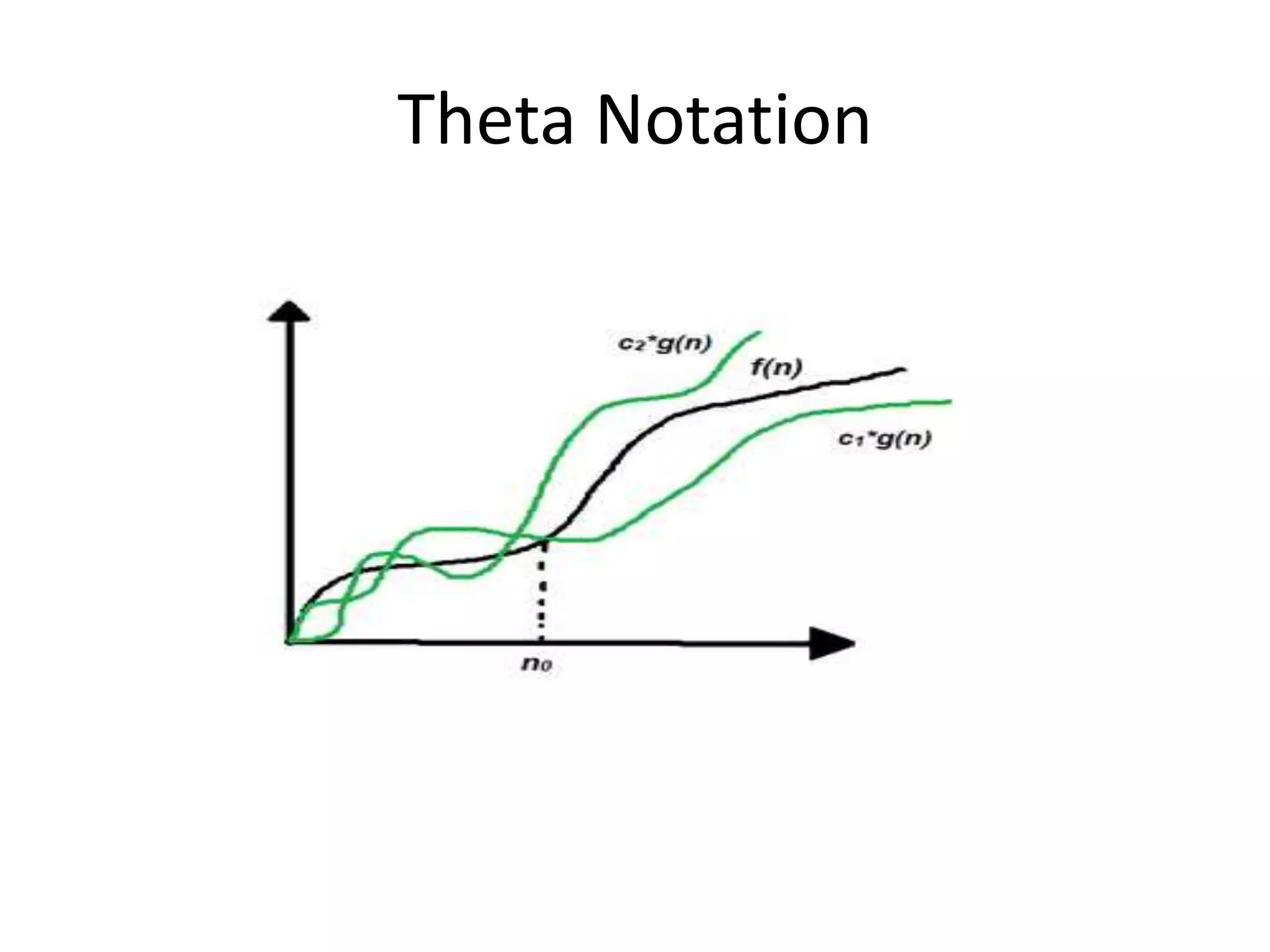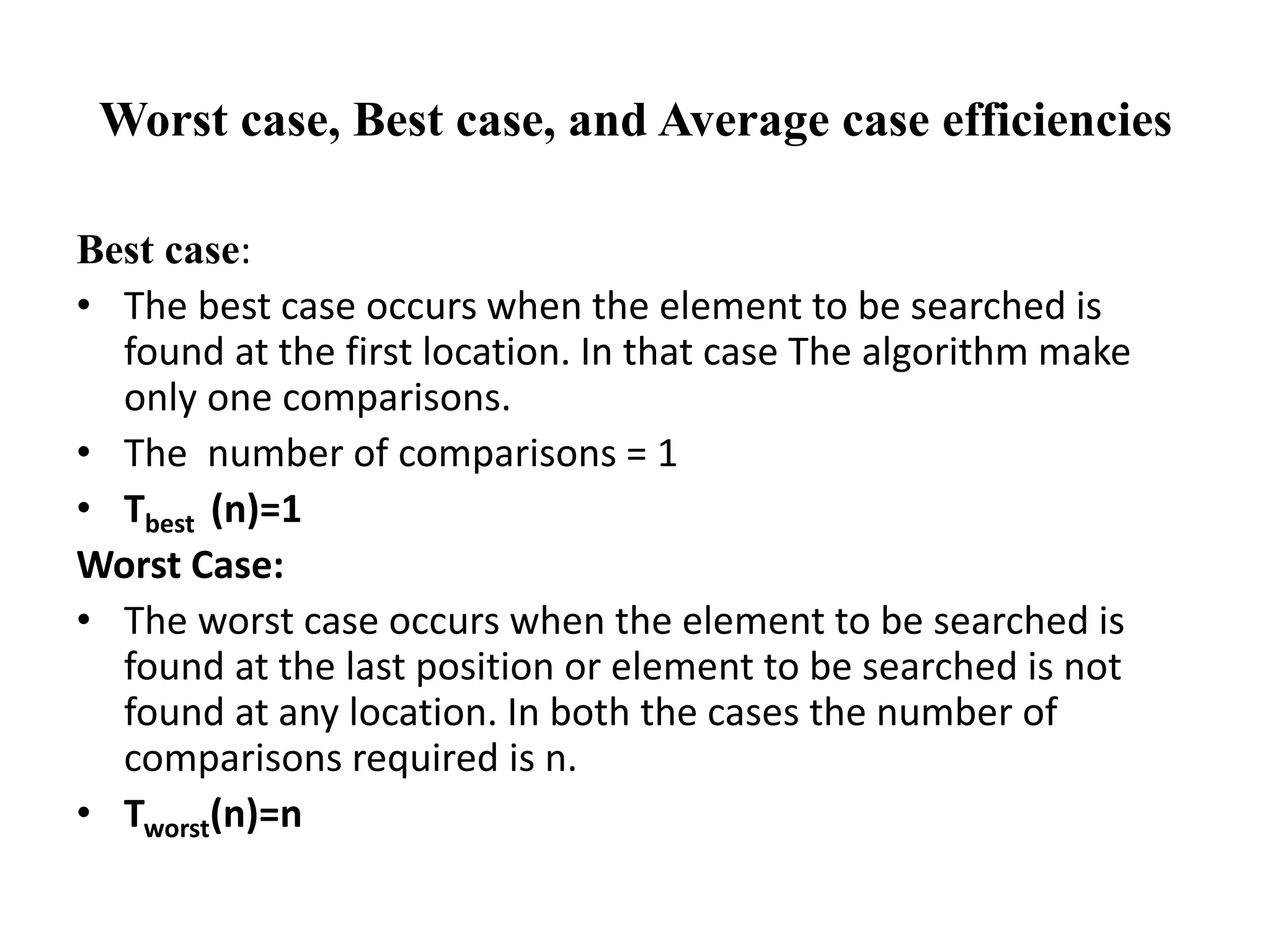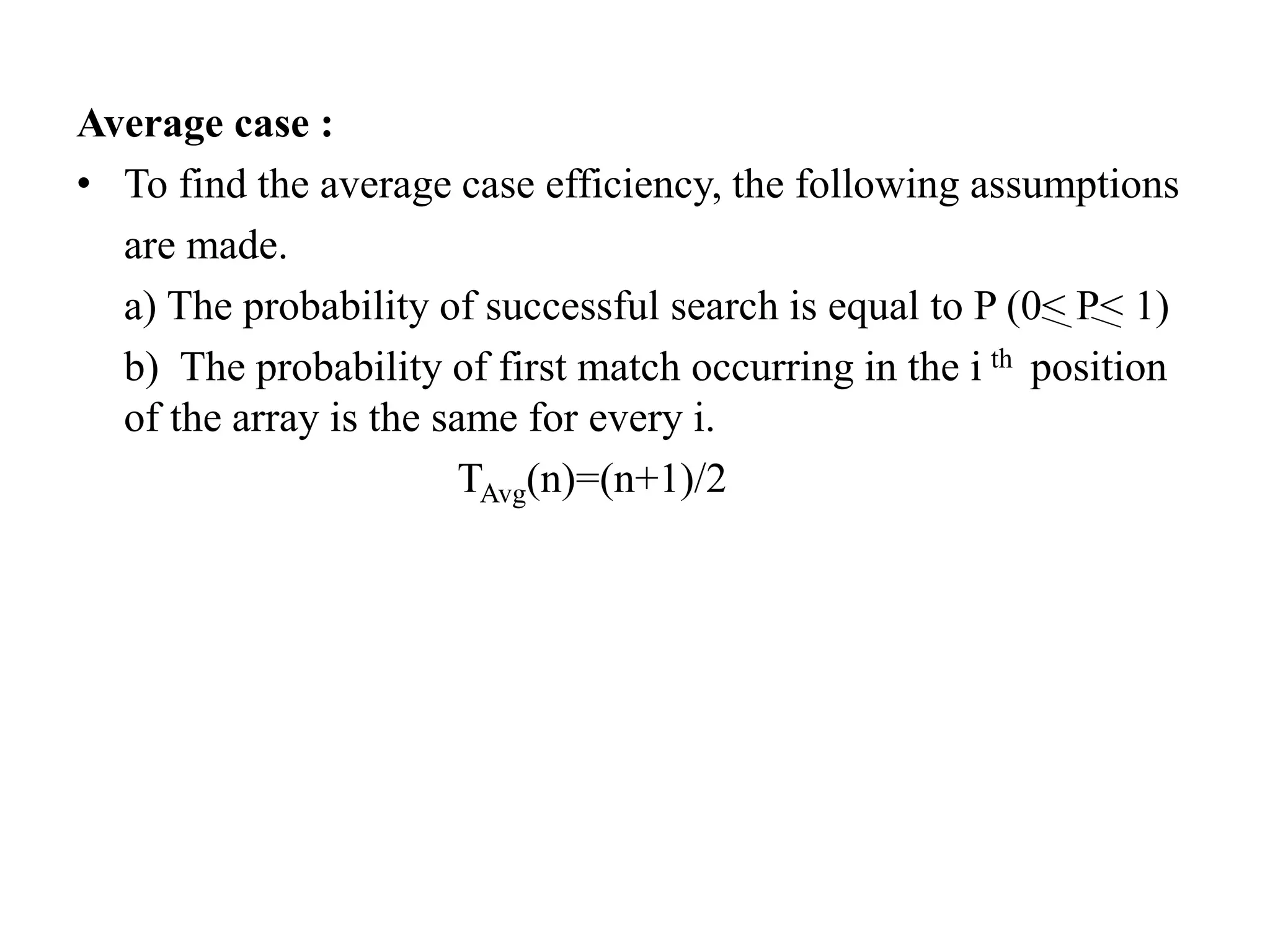An algorithm is a well-defined set of steps to solve a problem in a finite amount of time. The complexity of an algorithm measures the time and space required for inputs of different sizes. Time complexity indicates the running time, while space complexity measures storage usage. Analyzing algorithms involves determining their asymptotic worst-case, best-case, and average-case time complexities using notations like Big-O, Omega, and Theta. This provides insights into an algorithm's efficiency under different conditions.
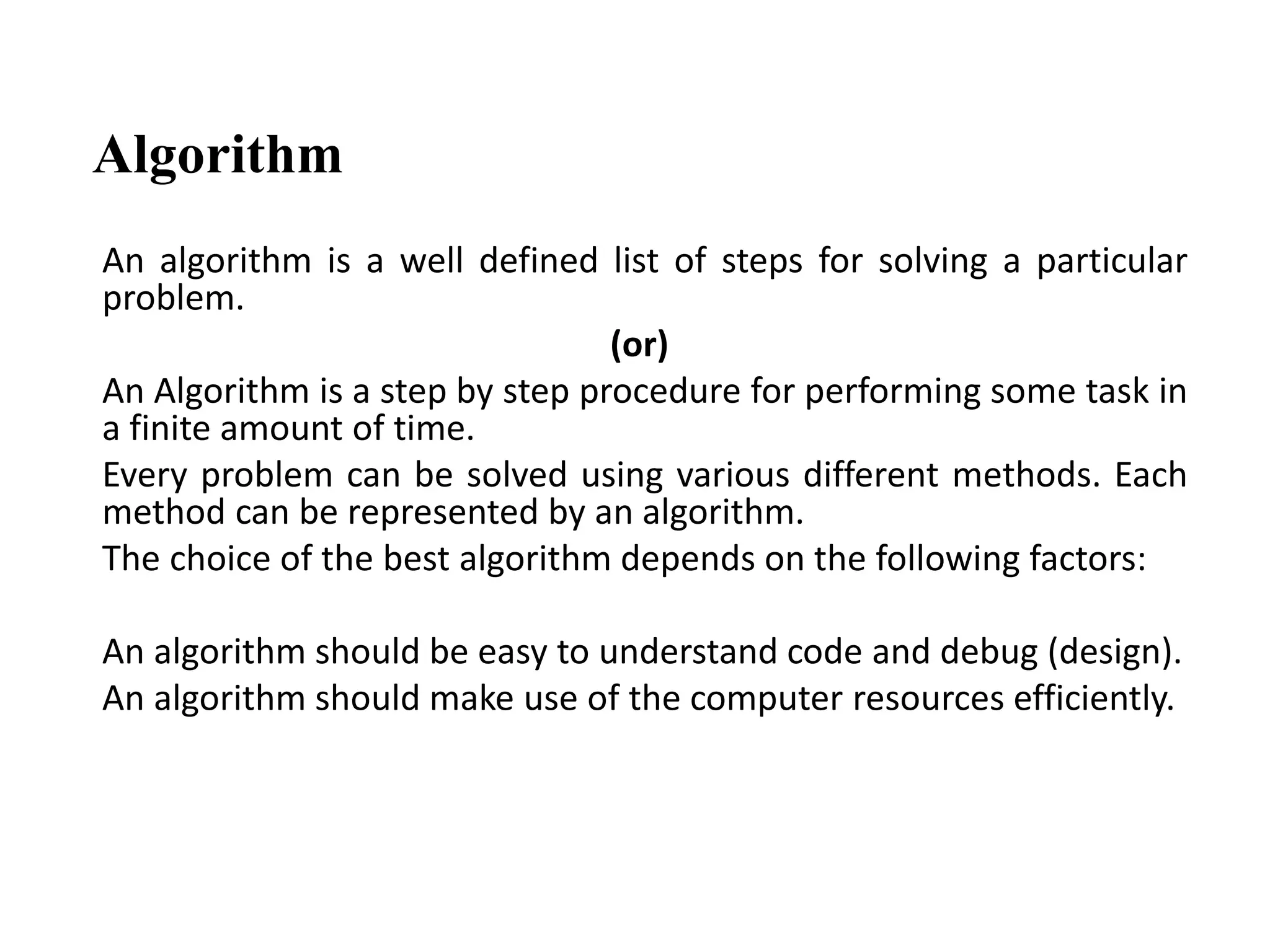
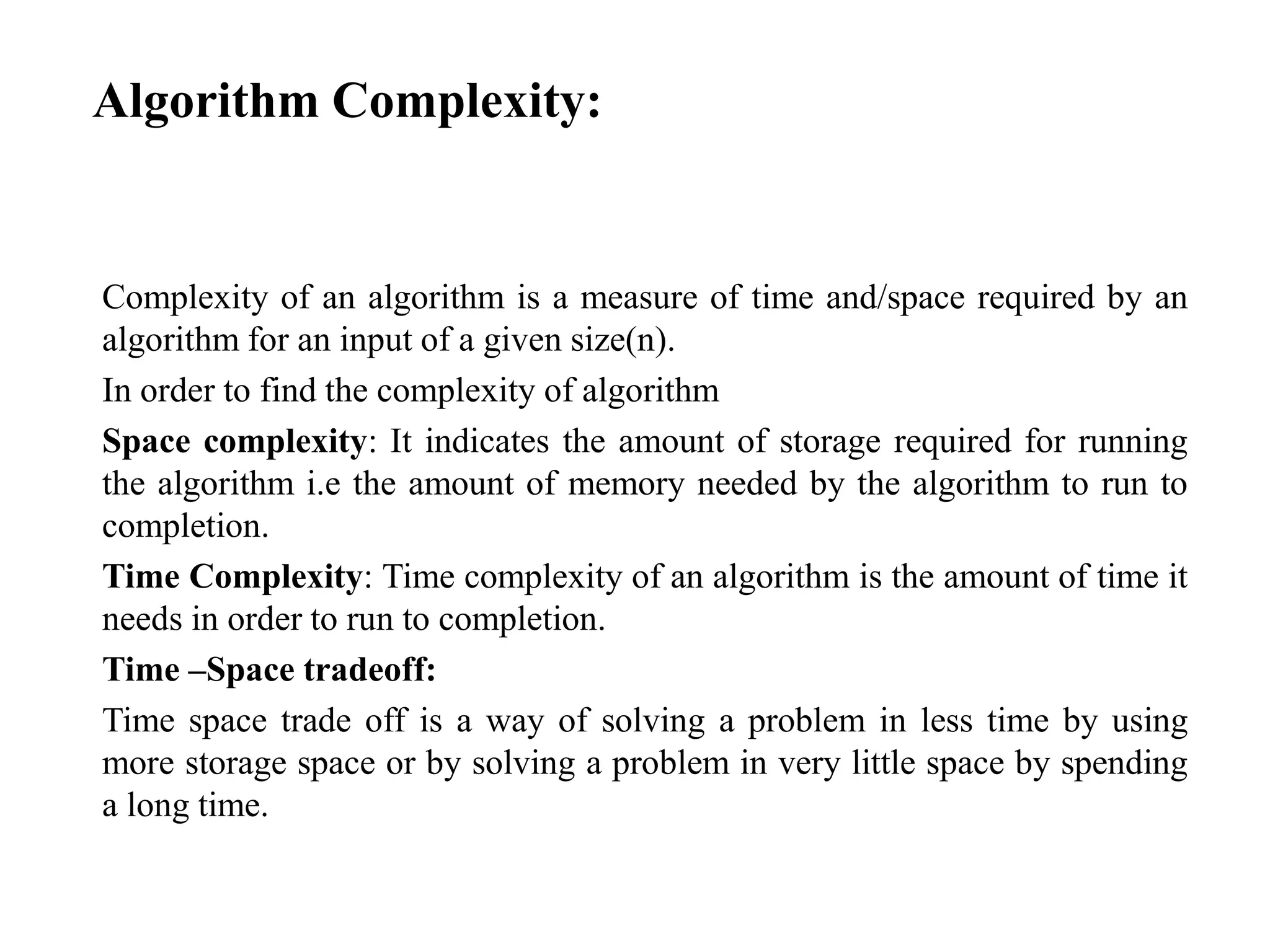
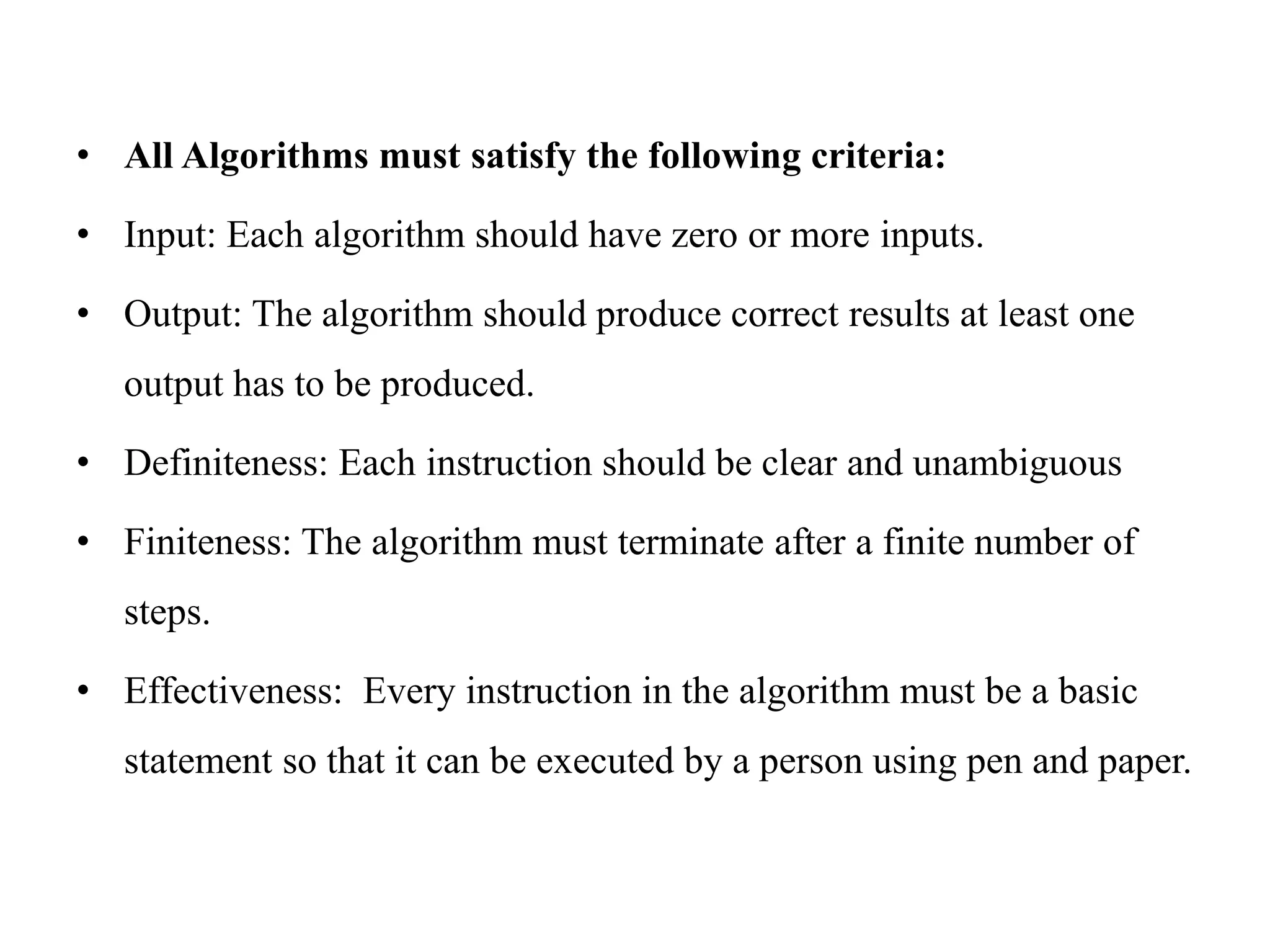
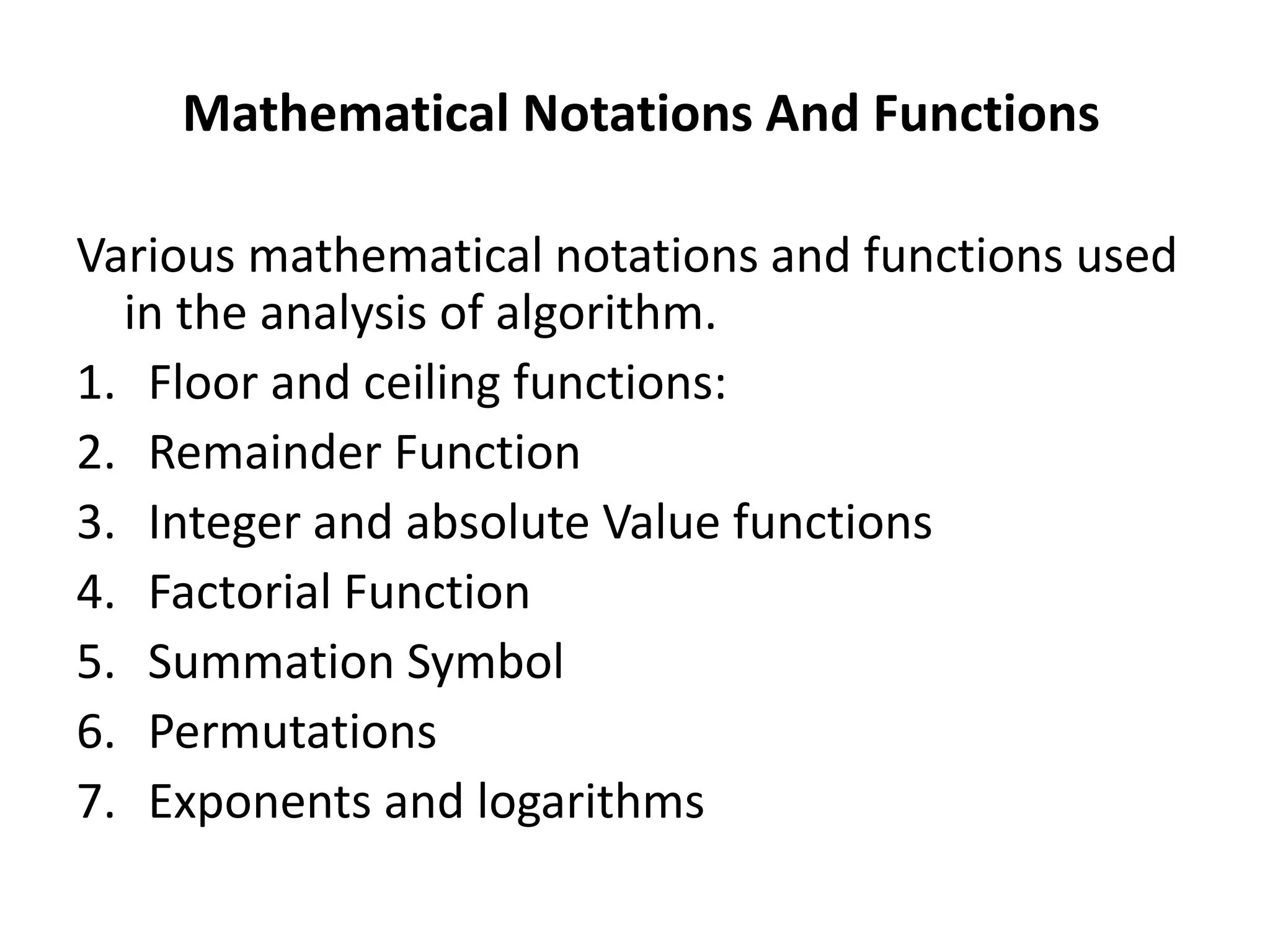
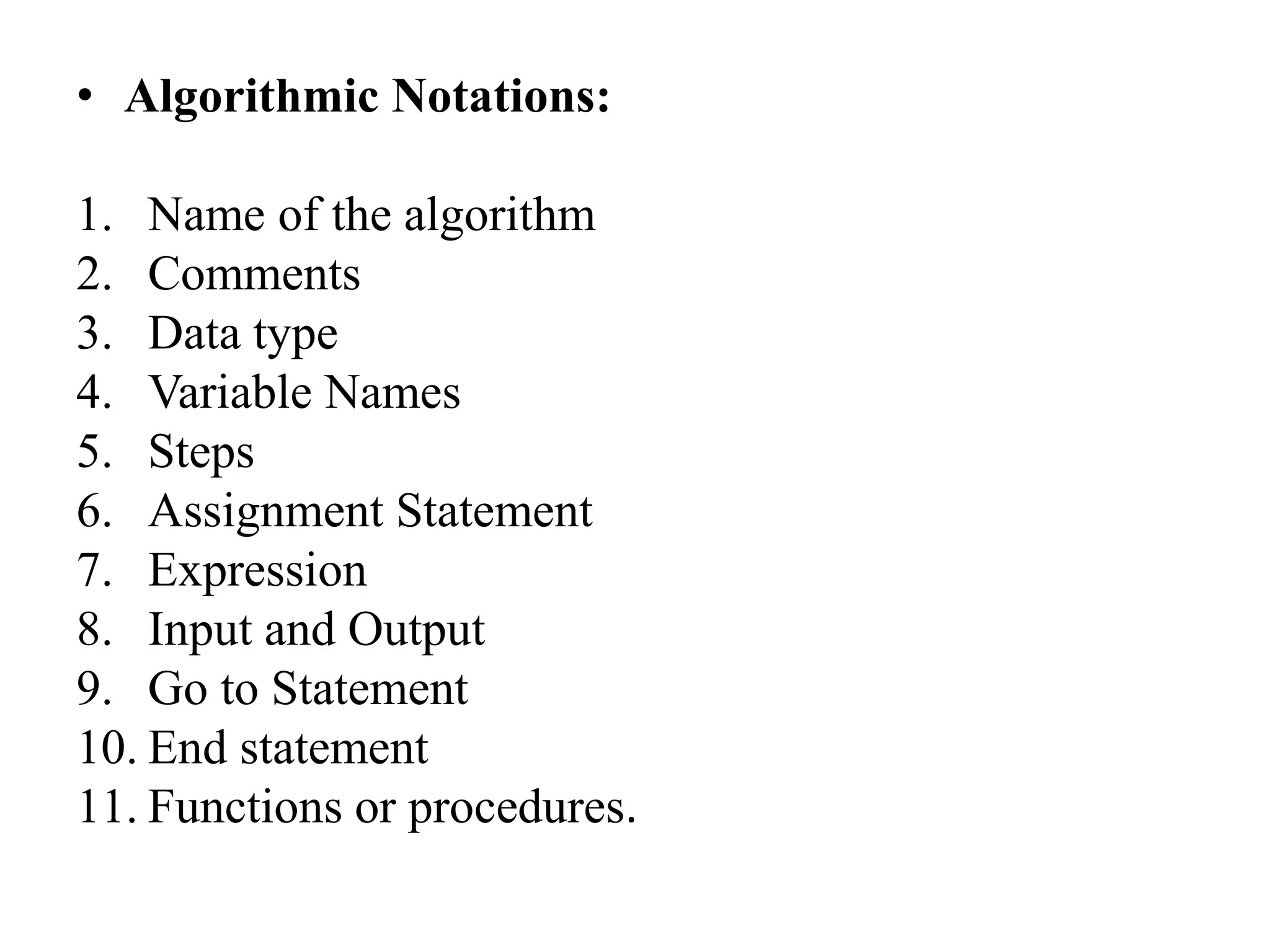
![Name of the algorithm:
• Every algorithm is given an Identifying name
Comments
• Every algorithm can have brief description of the tasks. But it gives the
name and types of the variables used in the algorithm. Comments begin
with // and continues until the end of line. Comments are included only for
clarity.
Data type
• Data types such as integer,real,char,boolean and other data structures such
as array, pointers,structure are used.
• Examples: int max,min,sum
• int a[ n]
Variable Names
• A Variable can have alphabets , digits and underscore
• It can’t start with a digit
• A variable name can start with the alphabet and underscore only.
• No white Spaces is allowed](https://image.slidesharecdn.com/algorithm-230406070607-2d0a7755/75/Algorithm-pptx-6-2048.jpg)
